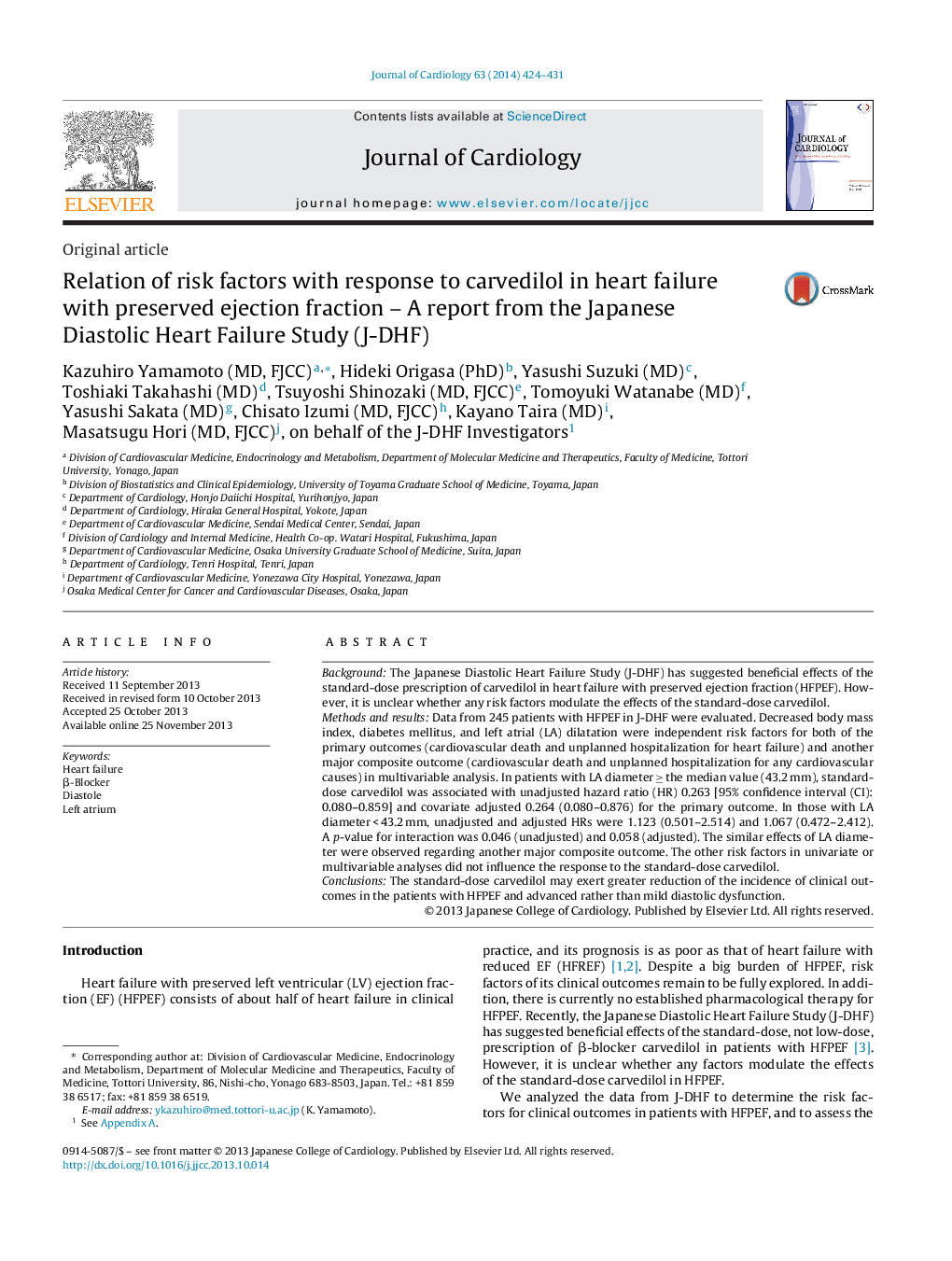| Article ID | Journal | Published Year | Pages | File Type |
|---|---|---|---|---|
| 2963025 | Journal of Cardiology | 2014 | 8 Pages |
BackgroundThe Japanese Diastolic Heart Failure Study (J-DHF) has suggested beneficial effects of the standard-dose prescription of carvedilol in heart failure with preserved ejection fraction (HFPEF). However, it is unclear whether any risk factors modulate the effects of the standard-dose carvedilol.Methods and resultsData from 245 patients with HFPEF in J-DHF were evaluated. Decreased body mass index, diabetes mellitus, and left atrial (LA) dilatation were independent risk factors for both of the primary outcomes (cardiovascular death and unplanned hospitalization for heart failure) and another major composite outcome (cardiovascular death and unplanned hospitalization for any cardiovascular causes) in multivariable analysis. In patients with LA diameter ≥ the median value (43.2 mm), standard-dose carvedilol was associated with unadjusted hazard ratio (HR) 0.263 [95% confidence interval (CI): 0.080–0.859] and covariate adjusted 0.264 (0.080–0.876) for the primary outcome. In those with LA diameter < 43.2 mm, unadjusted and adjusted HRs were 1.123 (0.501–2.514) and 1.067 (0.472–2.412). A p-value for interaction was 0.046 (unadjusted) and 0.058 (adjusted). The similar effects of LA diameter were observed regarding another major composite outcome. The other risk factors in univariate or multivariable analyses did not influence the response to the standard-dose carvedilol.ConclusionsThe standard-dose carvedilol may exert greater reduction of the incidence of clinical outcomes in the patients with HFPEF and advanced rather than mild diastolic dysfunction.
